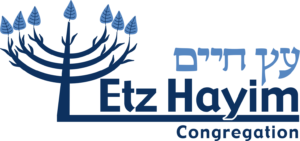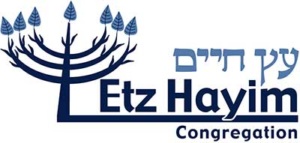Instructions for counting the omer are found on our Omer Overview Page. You can find the specific blessing for today at chabad.org.
We’re dedicating a new Sefer Torah on the first day of Shavuot. In honor of this joyous occasion, we’re using the counting of the Omer to take a whirlwind trip through the Torah
Today’s portion is Tazria, Metzora from the book of Leviticus. Today’s insight was generously provided by Fred R.
Verses of note: Leviticus 12:1 – 12:8
What caught your attention in this parashah?
It struck me as a contradiction of the very first true commandment of the Torah (“Be fruitful and multiply”). That is, now the Torah is suddenly saying that a woman who fulfills that mitzvah is contaminated in some manner.
What’s one explanation for these verses?
Actually, these verses led to yet more questions about these parshiyot. I have often heard them parshiyot described as boring, and the bane of youth whose Bnei Mitzvot fall on the Shabbat when they are read. But if looked at critically, these parshiyot are quite interesting, although the topics they cover are not easy to fully understand. Also, in many ways their implications are perhaps too mature for the typical 13 year-old to easily discuss, especially within the context of a Bar/Bat Mitzvah ceremony.
In fact, one can argue that topics such as impurity after childbirth are too “mature” for the typical rabbi to discuss in public. This might explain why so many commentaries immediately move to the topic of Lashon Hara (gossip/evil speech). That approach is as follows:
• Starting at verse 13 of Tazria, there is a discussion of a type of infection called tzara’at (which is often translated as leprosy, although it clearly is something else). Anyway…
• Later in the Torah, Miriam slanders Moses’ wife Tzipora
• As punishment, Miriam is afflicted by this disease
• Ergo, these parshiyot are really about Lashon Hara
A novel twist on this approach was suggested by Baron Rabbi Jonathan Sacks, who in a recent drash, turned it around and wrote about the meaning of Lashon Tov (good/righteous speech).
Nevertheless, that whole approach strikes me as a means of avoiding deeper discussion. Perhaps some sages and religious authorities view these parshiyot in the same light as the Haftara from Ezekiel which we read on Shavuot? That is, should deeper discussion be limited to people who have already achieved spiritual enlightenment? If so, why are these topics even in the Torah? Firstly, we expect all of our people, especially our youth, to study Torah. Secondly, our belief is that every word in the Torah – in fact every letter – is important. There are no extras, and none are superfluous. Thirdly, despite the warnings from some sages, we publicly chant the first chapter of Ezekiel every year.
So if one believes in the significance of each letter and word of the Torah – which in fact I do – it begs an obvious question. Why does the Torah devote so many words to the topic of tzara’at? The Torah includes many more words on this topic than on the topic of the Sabbath. Isn’t the Sabbath more important than tzara’at?
Actually, if pressed, I believe I could construct a reasonable drash which argues that comparing the number of words in the Torah relating to the Sabbath with the number of words relating to tzara’at justifies pikuach nefesh as a reason for breaking an observance of the Sabbath. But that would be a long drash, and there are numerous contradictions and topics worthy of discussion in these parshiyot. Jewish theology doesn’t assume total clarity.
I recently read a drash on a different parsha which stated that profundity is the result of studying contradictions, and that while Judaism is based on a belief in God, it requires only a limited number of beliefs concerning God’s nature. (See Rambam’s Guide to the Perplexed for more of that discussion.)
Therefore, since we can discuss God’s nature, we can certainly discuss the nature of God’s words. Ultimately, that’s why these parshiyot are far from boring, and why there are many ways to approach studying them.


